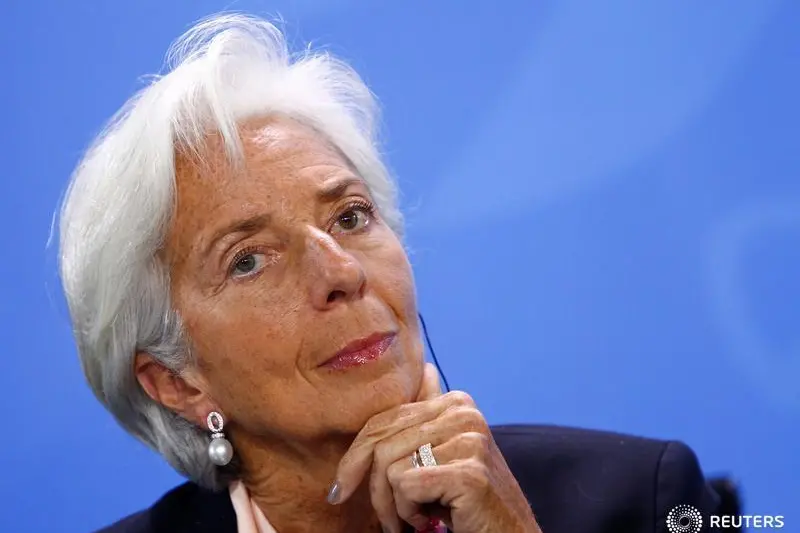PHOTO
Calls for further reforms in the region were raised again as the outlook for oil-exporting Mena countries is uncertain because regional countries have not recovered from the oil price shock witnessed five years ago, the International Monetary Fund (IMF) chief said on Saturday.
While addressing the fourth Arab Fiscal Forum in Dubai, IMF managing director Christine Lagarde called on Arab nations to rein in public debt, which has more than doubled in the last five years.
"The oil exporters have not fully recovered from the dramatic oil price shock of 2014. Modest growth continues, but the outlook is highly uncertain - reflecting in part the need for countries to shift rapidly toward renewable energy over the new few decades, in line with the Paris Agreement," Lagarde told the forum.
She emphasised that the economic path ahead for the region is challenging and it makes the task of fiscal policy much harder and even more important to build strong foundations to anchor fiscal policy. "With revenues down, fiscal deficits are only slowly declining - despite significant reforms on both the spending and revenue sides, including the introduction of VAT and excise taxes. This has led to a sharp increase in public debt - from 13 per cent of GDP in 2013 to 33 per cent in 2018."
Mubarak Rashid Khamis Al Mansouri, governor of the Central Bank of the UAE; Jihad Azour, director for the Middle East and Central Asia at the IMF; and other top executives and officials were also present at the forum.
GCC outlook
Meanwhile, an Emirates NBD Research has recently predicted that GCC outlook for 2019 is cautiously optimistic against a backdrop of slowing global growth and heightened geopolitical risks globally.
"We expect average growth of 2.5 per cent in the GCC this year, with the UAE to see faster growth than in 2018. We expect the Saudi economy to expand 2 per cent this year, slower than the government's estimate of 2.3 per cent growth in 2018," Emirates NBD's Khatija Haque, head of Mena research, and Daniel Richards, Mena economist, said. The analysts said that the key impediment to economic growth in non-GCC Mena this year will be domestic political risk.
Lagarde pointed out that sovereign wealth funds in the region directly finance projects, bypassing the normal budget process.
"State-owned enterprises in some countries have high levels of borrowing - again, outside of the budget. Addressing these fiscal risks would not only enhance budget credibility and transparency but would help keep a lid on corruption. Budgetary credibility also calls for better risk management, with a more comprehensive budget based on realistic forecasts," she said at the summit.
While addressing the forum, Obaid bin Humaid Al Tayer, UAE Minister of State for Financial Affairs, noted that the past few months have seen signs of slowing global growth, accompanied by increasing volatility in financial markets and oil prices. Trade tensions between the United States and China, the confusion over a no-deal Brexit and the tightening of fiscal and geopolitical factors in the region have contributed to global economic uncertainty.
He stressed that Arab countries are close trade partners of both China and the US, and are keen not to be affected by the trade tensions between the two countries. Al Tayer warned that some countries will continue to adopt a protectionist policy, which will put pressure on global trade flows that may ultimately affect the countries adopting protectionist approaches.
He explained that Brexit may offer fresh investment opportunities for Arab countries. He stressed on the importance of avoiding undesirable effects on British investments in the Arab region and tourist inflows.
Al Tayer stressed the role of a strong private sector in enhancing productivity, competitiveness and entrepreneurship, as well as investments in raising education and skill levels. He pointed to the importance of partnering with the private sector to strengthen the economy, and improve legal, institutional and economic frameworks, and the human capacity needed to ensure the efficient use of these resources.
The UAE called for developing legislation on the entry of global e-commerce platforms to the region's markets and the development of local and regional electronic platforms to enhance competition and break monopolies.
Copyright © 2019 Khaleej Times. All Rights Reserved. Provided by SyndiGate Media Inc. (Syndigate.info).





















